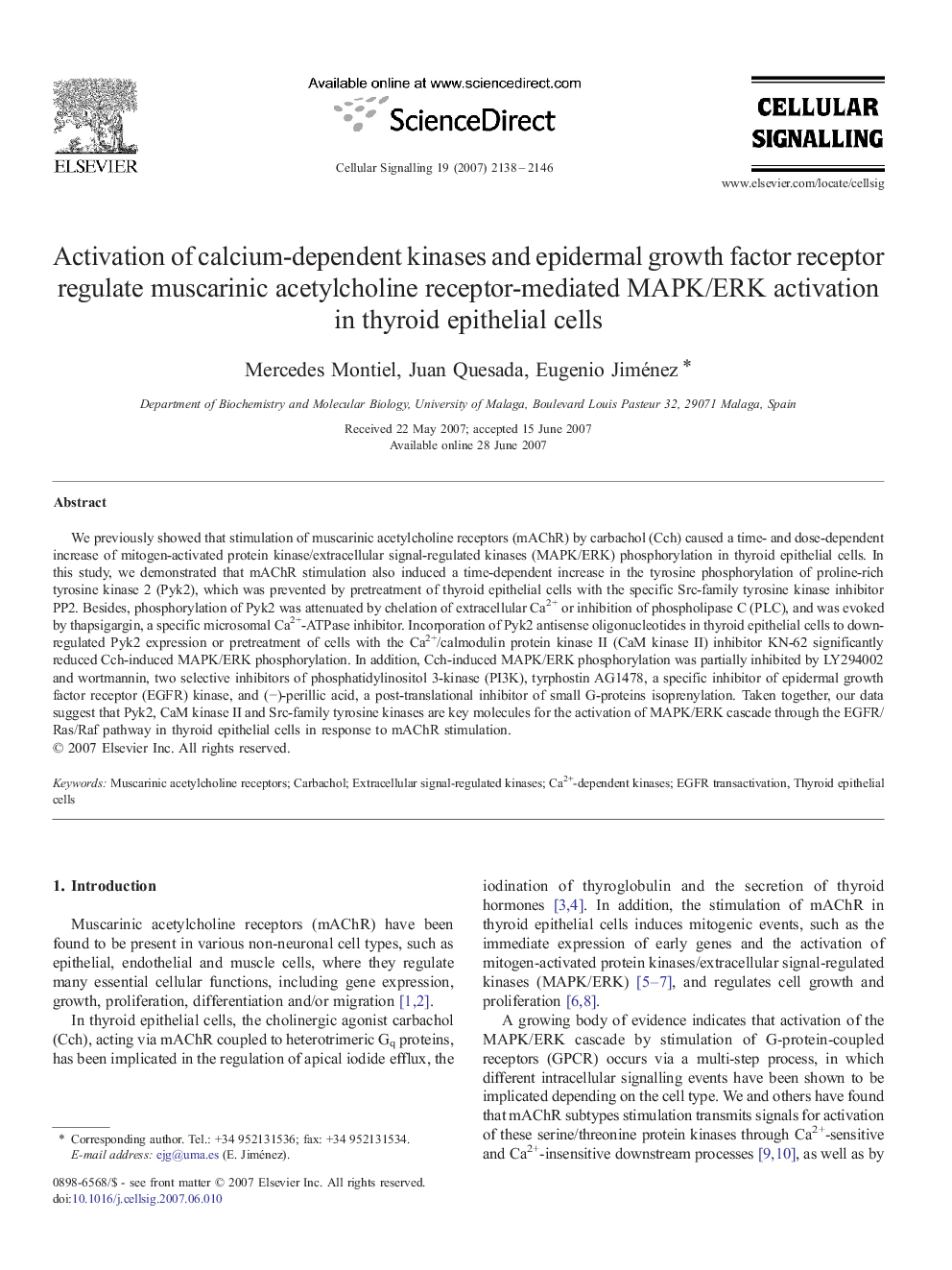| Article ID | Journal | Published Year | Pages | File Type |
|---|---|---|---|---|
| 1964376 | Cellular Signalling | 2007 | 9 Pages |
We previously showed that stimulation of muscarinic acetylcholine receptors (mAChR) by carbachol (Cch) caused a time- and dose-dependent increase of mitogen-activated protein kinase/extracellular signal-regulated kinases (MAPK/ERK) phosphorylation in thyroid epithelial cells. In this study, we demonstrated that mAChR stimulation also induced a time-dependent increase in the tyrosine phosphorylation of proline-rich tyrosine kinase 2 (Pyk2), which was prevented by pretreatment of thyroid epithelial cells with the specific Src-family tyrosine kinase inhibitor PP2. Besides, phosphorylation of Pyk2 was attenuated by chelation of extracellular Ca2+ or inhibition of phospholipase C (PLC), and was evoked by thapsigargin, a specific microsomal Ca2+-ATPase inhibitor. Incorporation of Pyk2 antisense oligonucleotides in thyroid epithelial cells to down-regulated Pyk2 expression or pretreatment of cells with the Ca2+/calmodulin protein kinase II (CaM kinase II) inhibitor KN-62 significantly reduced Cch-induced MAPK/ERK phosphorylation. In addition, Cch-induced MAPK/ERK phosphorylation was partially inhibited by LY294002 and wortmannin, two selective inhibitors of phosphatidylinositol 3-kinase (PI3K), tyrphostin AG1478, a specific inhibitor of epidermal growth factor receptor (EGFR) kinase, and (−)-perillic acid, a post-translational inhibitor of small G-proteins isoprenylation. Taken together, our data suggest that Pyk2, CaM kinase II and Src-family tyrosine kinases are key molecules for the activation of MAPK/ERK cascade through the EGFR/Ras/Raf pathway in thyroid epithelial cells in response to mAChR stimulation.
